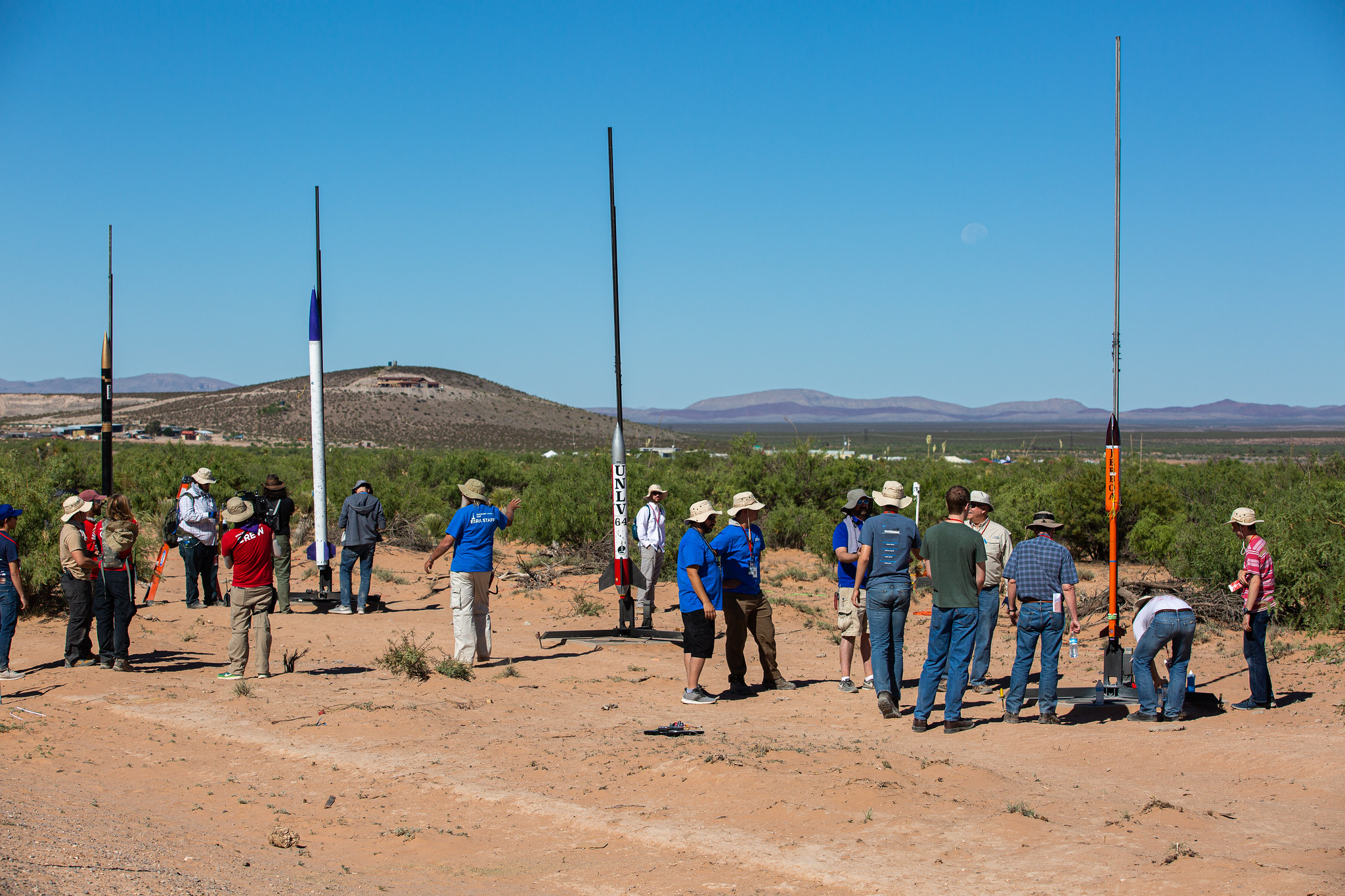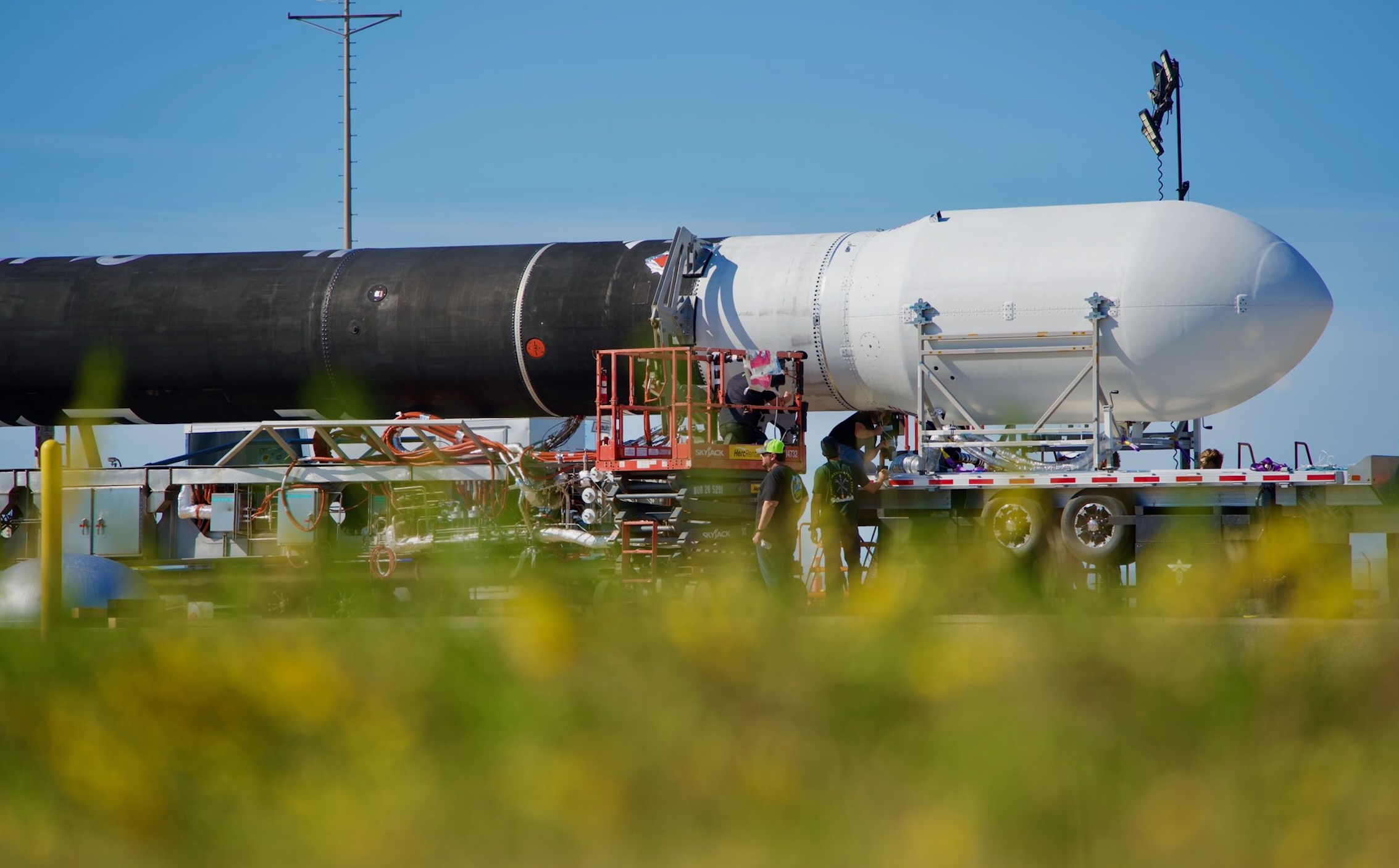Calling All Student Rocketeers! Spaceport America Cup Applications Are Due Friday
Breaking space news, the latest updates on rocket launches, skywatching events and more!
You are now subscribed
Your newsletter sign-up was successful
Want to add more newsletters?
Students around the world are wrapping up design ideas for experimental rockets to compete in the fourth annual Spaceport America Cup, the largest intercollegiate rocket engineering contest on Earth.
More than 100 teams of young rocketeers will launch their creations next June in New Mexico at Spaceport America, a private launch facility that's also home to Virgin Galactic, a space tourism company. Their rockets will soar as high as 30,000 feet (9,100 meters), depending on their category. Judges will determine the winners.
College, university and high school students can compete in the contest, and there are still a few days left to submit an application. Entries are due by Friday (Oct. 18) at 5 p.m. EDT (2100 GMT), and the Experimental Sounding Rocket Association (ESRA), which hosts the event, will select the teams that will compete in the 2020 Spaceport America Cup by the end of the month.
Related: Student Rocket Tops 30,000 Feet, Wins 1st 'Spaceport America Cup'
To enter the contest, all you need to do this week is submit an application outlining your team's plans to design, build and launch a rocket equipped with a scientific payload. To complete an application, teams will need a general idea of the rocket's parameters, such as its size, weight and type of propulsion, as well as its flight trajectory. Teams will also need a plan for how to recover the rocket after flight — what kind of parachute system the rocket will have — and how they plan to test that recovery system before the big competition.
Students from 122 teams and 14 different countries competed in the 2019 Spaceport America Cup. A majority of last year's applicants were selected to compete, Cliff Olmsted, president of ESRA, told Space.com. Any team that fills out the application has a pretty good chance of being selected, he added. However, teams that are pressed for time before the Oct. 18 deadline may want to wait until next year to file an application and get a head start on designs for the 2021 Spaceport America Cup.
There are plenty of chances to be a winner at the Spaceport America Cup, with six separate contest categories based on the type of rocket. The Utah State University's Space Dynamics Laboratory (SDL) is also offering $1,500 in cash prizes for the teams that launch the most "meaningful" payloads, according to the contest description. Teams will also receive honorary awards for things like innovation, computer modeling and simulation, sportsmanship and team spirit. Only one overall winner gets to take home the Genesis Cup, You can see the whole list of past winners here.
Breaking space news, the latest updates on rocket launches, skywatching events and more!
Not only is the Spaceport America Cup a fun opportunity for students launch their own rockets in the desert of New Mexico, but it's also a great place for them to get a foot in the door of the rocket industry. Sponsors from companies like Virgin Galactic, Boeing, Blue Origin, Northrop Grumman and the United Launch Alliance recruit interns from the Spaceport America Cup every year, Olmsted said. So, just as students can benefit from participating in the competition, it's also a great way for companies to foster the next generation of scientists and engineers who will design the rockets of the future.
For more details about the contest rules and how to apply, you can find all the relevant forms and documents here. To fill out an application to enter the competition, visit herox.com/SpaceportAmericaCup2020 (you'll need to create an account). So far, 160 teams have started filling out applications, but only 54 have submitted.
- Watch a Student-Built Rocket Go Supersonic!
- USC Students' Rocket Reaches Space in Record-Setting Launch
- Students Will Launch Rockets to the Edge of Space for $1 Million Prize
Email Hanneke Weitering at hweitering@space.com or follow her @hannekescience. Follow us on Twitter @Spacedotcom and on Facebook.

Hanneke Weitering is a multimedia journalist in the Pacific Northwest reporting on the future of aviation at FutureFlight.aero and Aviation International News and was previously the Editor for Spaceflight and Astronomy news here at Space.com. As an editor with over 10 years of experience in science journalism she has previously written for Scholastic Classroom Magazines, MedPage Today and The Joint Institute for Computational Sciences at Oak Ridge National Laboratory. After studying physics at the University of Tennessee in her hometown of Knoxville, she earned her graduate degree in Science, Health and Environmental Reporting (SHERP) from New York University. Hanneke joined the Space.com team in 2016 as a staff writer and producer, covering topics including spaceflight and astronomy. She currently lives in Seattle, home of the Space Needle, with her cat and two snakes. In her spare time, Hanneke enjoys exploring the Rocky Mountains, basking in nature and looking for dark skies to gaze at the cosmos.


